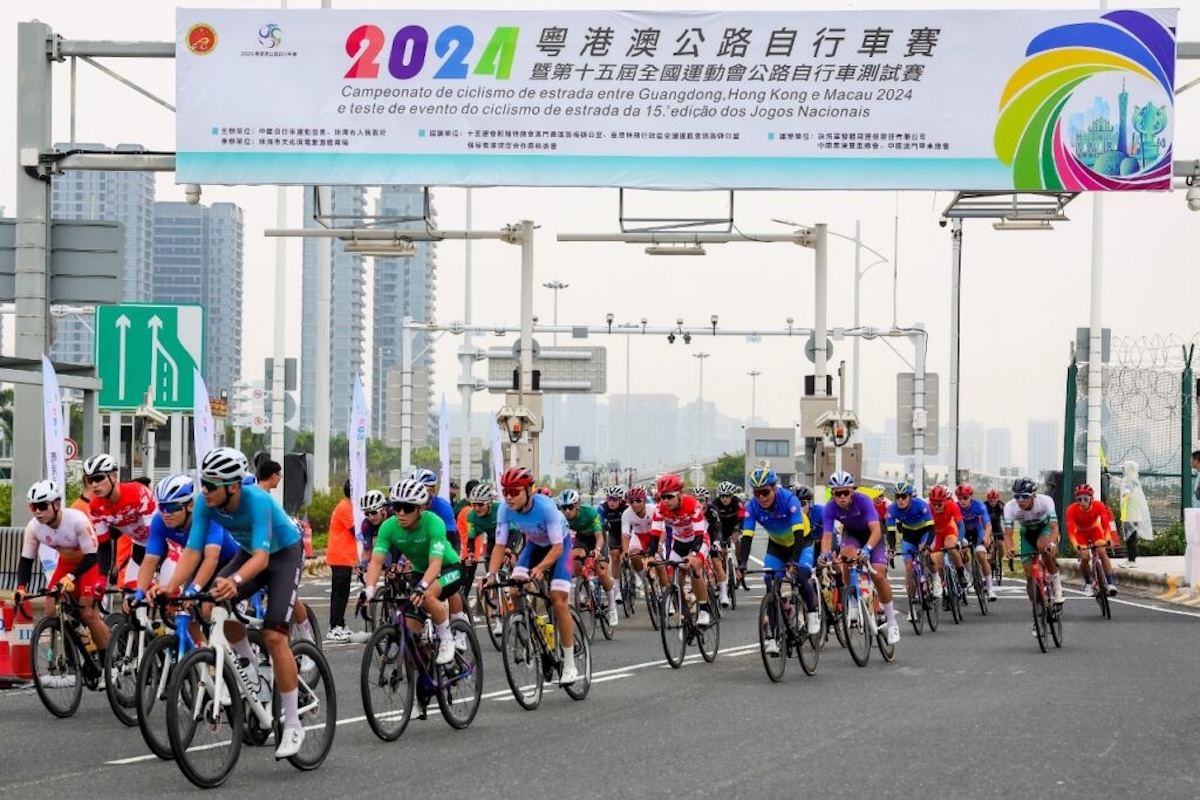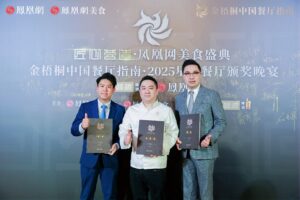- The road cycling races of the National Games will see riders compete via the Hong Kong-Zhuhai-Macao Bridge – linking Zhuhai, Macau, Hong Kong and Hengqin.
- The example of a single major sporting event being jointly hosted by the regions could serve as a landmark example.
The greatly anticipated road cycling races of the 15th National Games will take place from 7 to 9 November, featuring four competitions including men’s and women’s time trials and men’s and women’s individual road races.
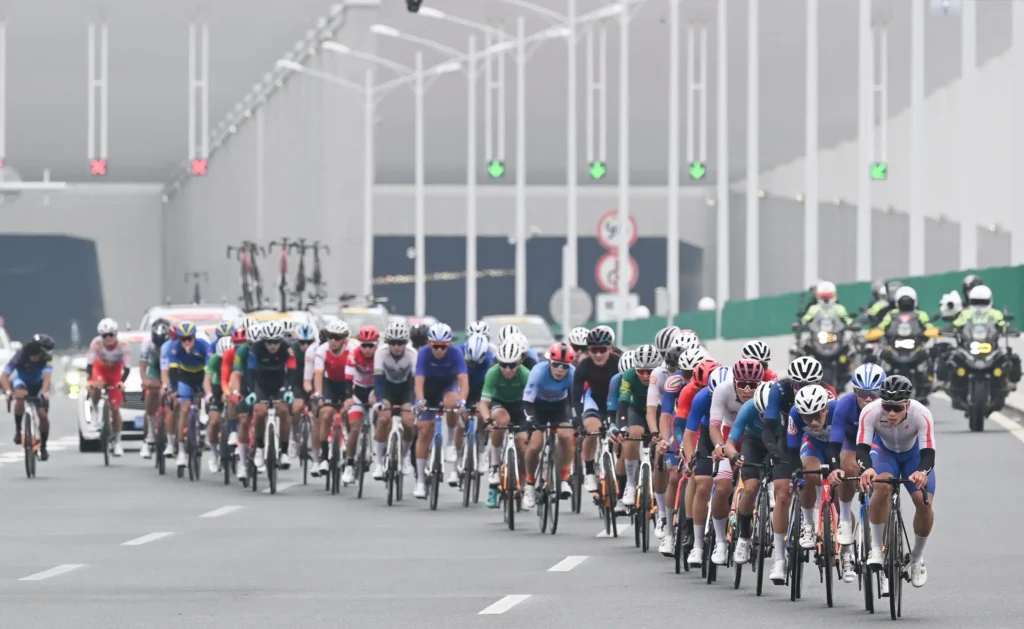
The headline Men’s Individual Road Race takes place on 8 November. Covering approximately 231.8 kilometers, it centers on the Hong Kong-Zhuhai-Macao Bridge, linking Zhuhai, Macau, Hong Kong and the Hengqin Guangdong-Macao In-depth Cooperation Zone. This marks the first truly “cross-border” competition in the Games’ history.
International cycling referee Andy Leong remarked that connecting the cities of Guangdong, Hong Kong and Macau on a single racecourse represents a groundbreaking achievement.
“This major sporting competition jointly hosted by the three regions could serve as a landmark example, providing a valuable precedent for the potential future co-hosting of major international sporting events or large-scale international multi-sport games within the Guangdong-Hong Kong-Macao Greater Bay Area,” he said.
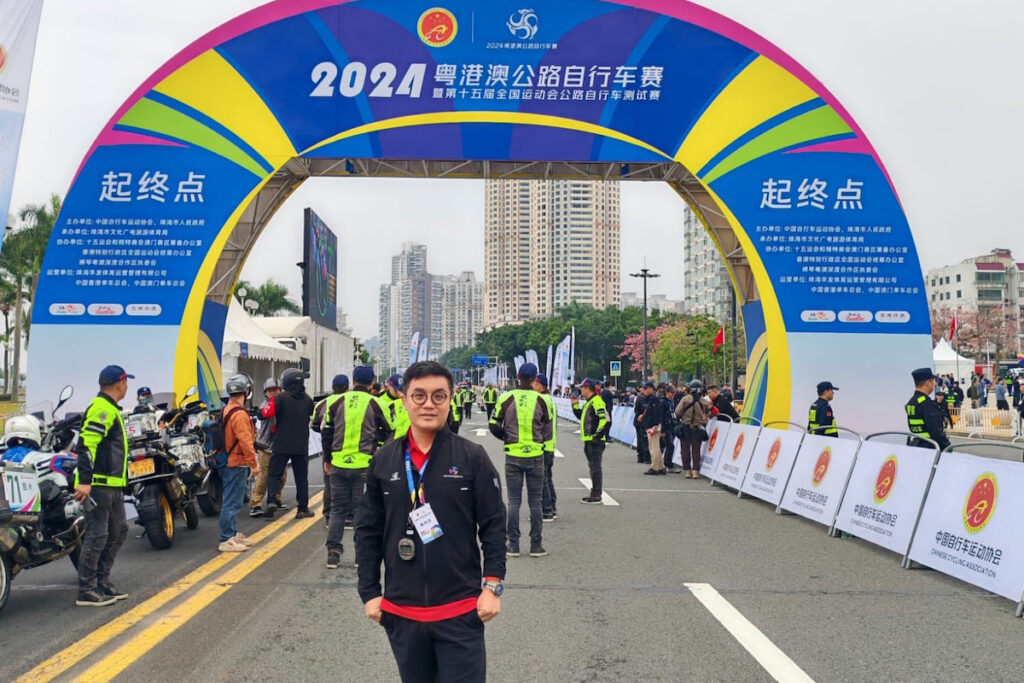
Leong also indicated that, owing to the competition’s multiple border crossing procedures and the regulations of the three regions, the respective governments have made considerable efforts to resolve clearance and transport arrangements. The competition will adopt a closed-loop management system.
“Significant resources were invested by the three governments to facilitate seamless border crossings and clearances, overcoming various technical difficulties to pioneer this cross-border sporting endeavor,” he continued.
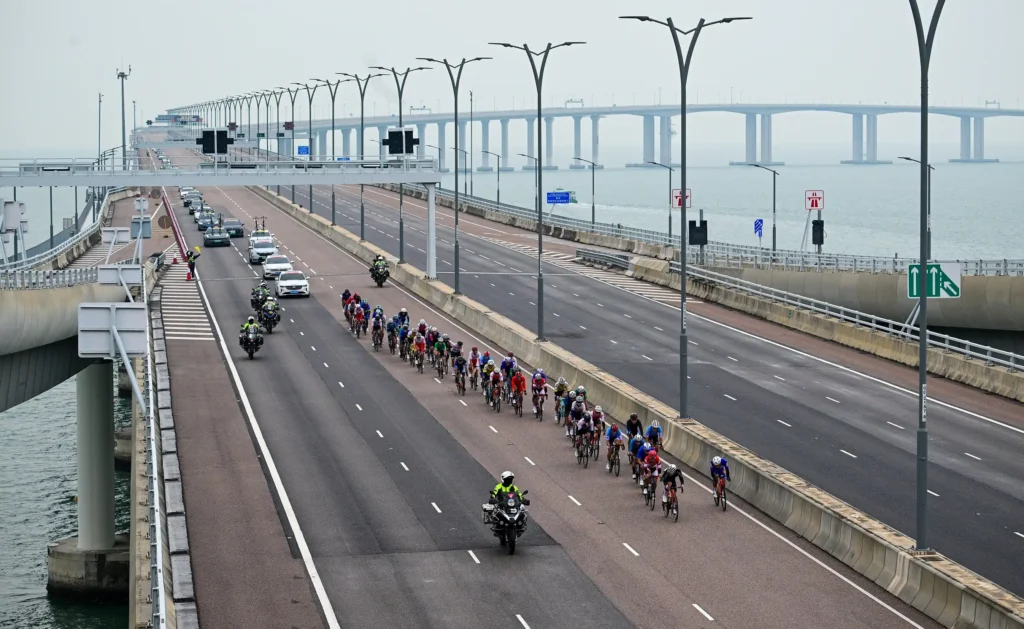
Beyond hosting the competition, Macau has fielded its largest ever cycling contingent for these National Games. Leong noted that mainland China’s cycling development is advancing rapidly, with a comprehensive youth training system. This provides Macau athletes with frequent opportunities to exchange with mainland riders, enhancing their technical skills and tactical thinking.
“Given the relatively lower participation costs on the mainland, coupled with its comprehensive range of skill levels and age categories, this provides greater competition opportunities for Macau’s youth athletes,” he said. “It also fosters increased interaction and exchange among coaches, referees and competition officials, thereby creating more scope for the development of youth sports training in Macau.”

